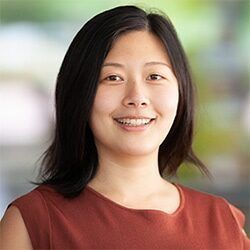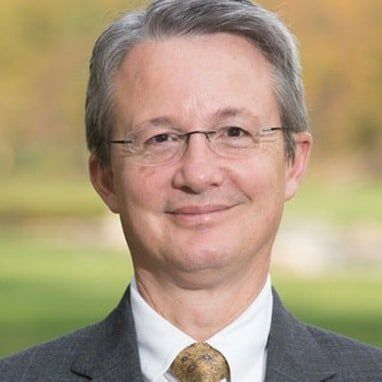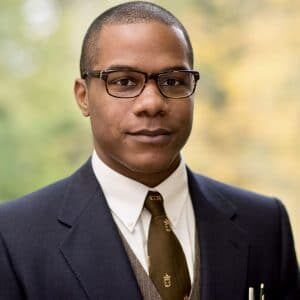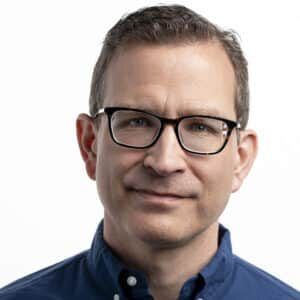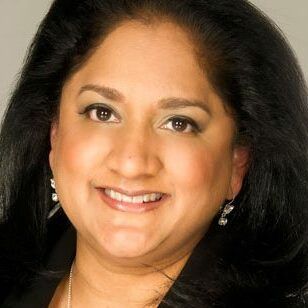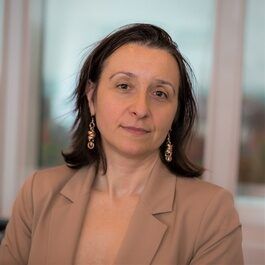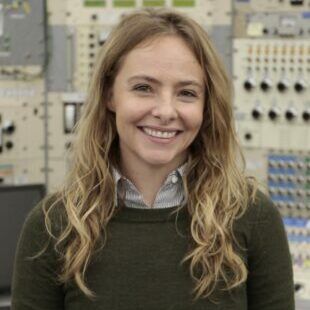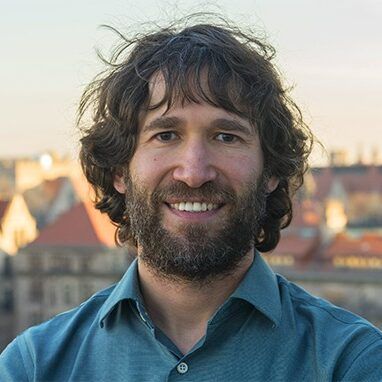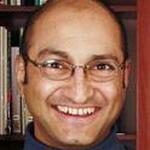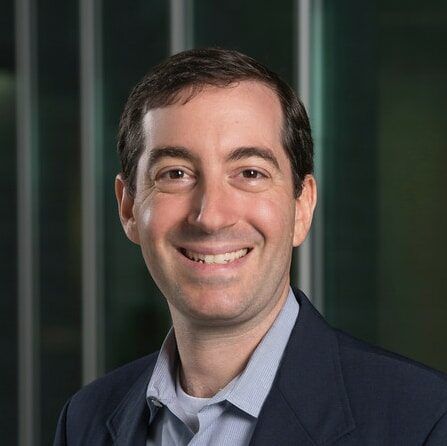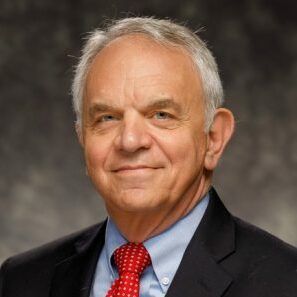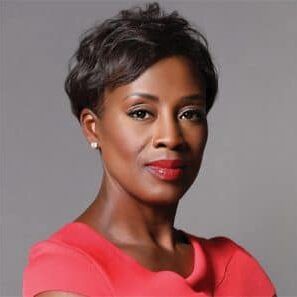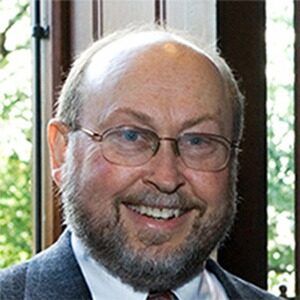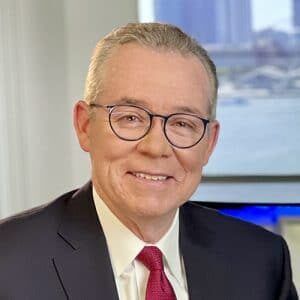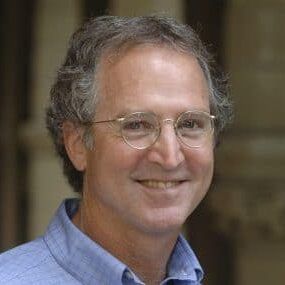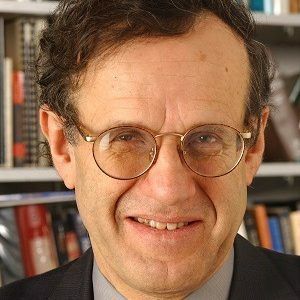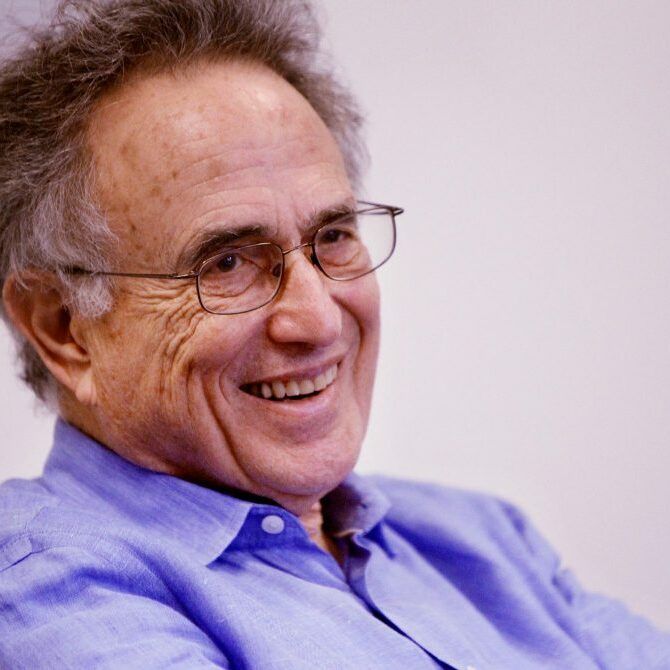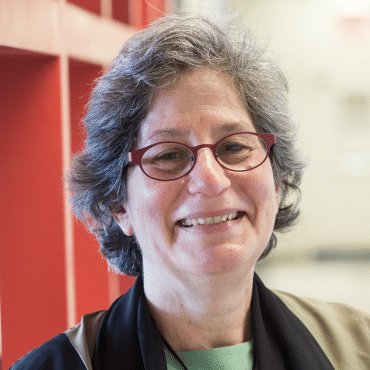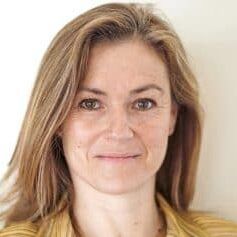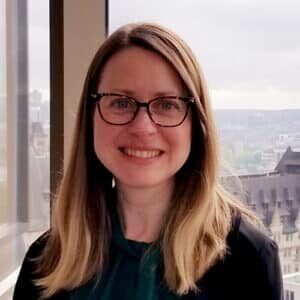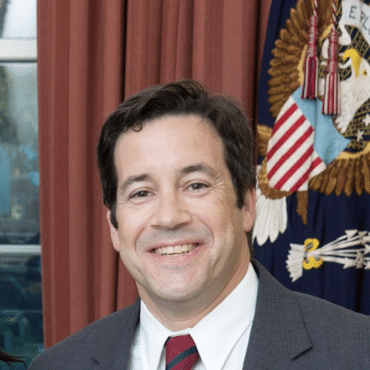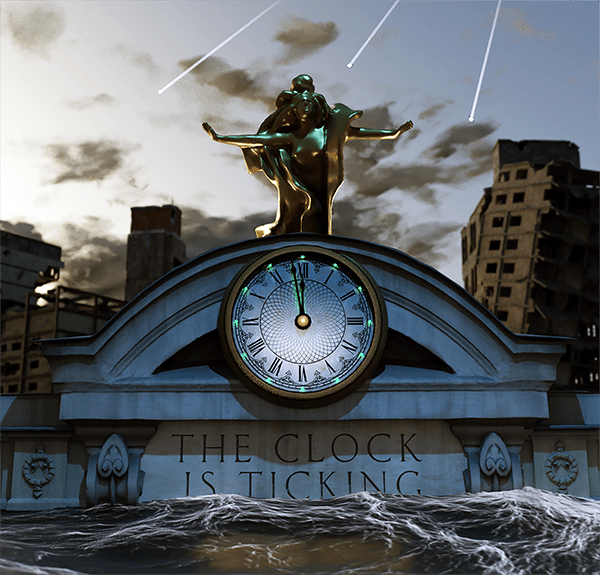
Conversations Before Midnight
Bulletin Annual Gathering 2022
November 9, 2022 | 5:00 - 6:30 p.m. CDT
Table Experts
Each virtual table has an expert, established and up-and-coming specialists in the fields of nuclear risk, climate change, disruptive technologies, and biosecurity. These discussion leaders include members of the Bulletin’s Science and Security Board, Board of Sponsors, and invited experts from around the world. Below are a few samples from the 2022 annual gathering.
Alina Chan
Biosecurity
Alina Chan is a scientific advisor and viral vector engineer at the Broad Institute of MIT & Harvard. Dr. Chan is a Broad Ignite fellow and a recent Human Frontier Science Program fellow with a background in medical genetics, synthetic biology, and genetic engineering. Her research has been focused on creating next generation vectors for human gene therapy. During the pandemic, Dr. Chan began to investigate problems relevant to finding the origin of the SARS-CoV-2 virus and spearheaded the development of the COVID-19 CoV Genetics (covidcg.org) browser for scientists worldwide to rapidly track virus lineages and mutations by locations and date ranges of interest.
Steve Fetter
Disruptive Technologies
Steve Fetter served for five years in the White House Office of Science and Technology Policy during the Obama Administration, where he led the environment and energy and the national security and international affairs divisions. He has worked on nuclear policy issues in the Pentagon and the State Department and has been a visiting fellow at Stanford, Harvard, MIT, and Lawrence Livermore National Laboratory. Now, he is associate provost, dean of the graduate school, and professor of public policy at the University of Maryland.
Trenton W. Ford
Disruptive Technologies
Trenton W. Ford is a doctoral candidate in computer science at the University of Notre Dame. His research focuses on misinformation and disinformation in online contexts. Specifically, Trenton’s work has involved investigating meme evolution, exploring image-text consistency in news articles, and predicting online community language usage.
Ford is a member of the Bulletin Editorial Fellows Program.
Bruce Friedrich
Climate Change
Bruce Friedrich is founder & CEO of the Good Food Institute, a global network of nonprofit organizations, with affiliates in the U.S., India, Israel, Brazil, Singapore, and Europe. GFI works on alternative protein policy, science, and corporate engagement. Bruce has penned op-eds for the Wall Street Journal, USA Today, and other publications, and has appeared on podcasts including Making Sense (Sam Harris), Ezra Klein, and others. Bruce's 2019 TED talk has been viewed more than 2.3 million times and translated into 30 languages. Bruce graduated magna cum laude from Georgetown Law and also holds degrees from Johns Hopkins University, the London School of Economics, and Grinnell College.
Asha George
Biosecurity
Asha George is the executive director of the Bipartisan Commission on Biodefense. She is a public health security professional whose research and programmatic emphasis has been practical, academic, and political. George served in the US House of Representatives as a senior professional staffer and subcommittee staff director at the House Committee on Homeland Security in the 110th and 111th Congress. She has worked for a variety of organizations, including government contractors, foundations, and non-profits. As a contractor, she supported and worked with all federal Departments, especially the Department of Homeland Security and the Department of Health and Human Services. George also served on active duty in the US Army as a military intelligence officer and as a paratrooper. She is a decorated Desert Storm Veteran. She holds a Bachelor of Arts in Natural Sciences from Johns Hopkins University, a Master of Science in Public Health from the University of North Carolina at Chapel Hill, and a Doctorate in Public Health from the University of Hawaii at Manoa. She is also a graduate of the Harvard University National Preparedness Leadership Initiative.
Francesca Giovannini
Nuclear Risk
Francesca Giovannini is the executive director of the Project on Managing the Atom at the Harvard Kennedy School’s Belfer Center for Science & International Affairs and the academic director of the MacArthur Research Network on Rethinking Nuclear Deterrence. She teaches at the Fletcher school on issues related to emerging technologies and nuclear policies.
Dr. Giovannini has served for several international organizations including the Comprehensive Nuclear Test Ban Treaty Organization (CTBTO), the United Nations Development Program and the UN Crisis Prevention and Recovery Network.
She continues to consult widely with international organizations on issues related to technology and international affairs. She is a contributor to various illustrious press outlets including the Bulletin, Arms Control Today, Nature, among others.
Bethany Goldblum
Nuclear Risk
Bethany Goldblum is a scientist at Lawrence Berkeley National Laboratory and an associate research engineer in the Department of Nuclear Engineering at UC Berkeley. She is executive director of the Nuclear Science and Security Consortium, a multi-institution initiative established by the National Nuclear Security Administration to train the next generation of nuclear security experts. Goldblum is active at the interface of nuclear technology and policy, as director of the Nuclear Policy Working Group and the Public Policy and Nuclear Threats Boot Camp. She is author or co-author of more than 100 publications on nuclear science and policy issues.
Daniel Holz
Disruptive Technologies
Daniel Holz is a professor at the University of Chicago in the Departments of Physics, Astronomy & Astrophysics, the Enrico Fermi Institute, and the Kavli Institute for Cosmological Physics. His research focuses on general relativity in the context of astrophysics and cosmology. He is a member of the Laser Interferometer Gravitational-Wave Observatory (LIGO) collaboration, and was part of the team that announced the first detection of gravitational waves in early 2016 and the first multi-messenger detection of a binary neutron star in 2017. He received a 2012 National Science Foundation CAREER Award, the 2015 Quantrell Award for Excellence in Undergraduate Teaching, and the Breakthrough Prize in Fundamental Physics in 2016. Holz was selected as a Kavli Fellow of the National Academy of Sciences and is a Fellow of the American Physical Society. He received his PhD in physics from the University of Chicago and his AB in physics from Princeton University. Holz is co-chair of the Bulletin's Science and Security Board.
Sivan Kartha
Climate Change
Sivan Kartha is a senior scientist at the Stockholm Environmental Institute whose research and publications for the past 25 years have focused on technological options and policy strategies for addressing climate change, concentrating most recently on equity and efficiency in the design of an international climate regime. He is a co-leader of SEI’s Gender and Social Equity Programme, and co-director of the Climate Equity Reference Project. His current work deals primarily with the economic, political, and ethical dimensions of equitably sharing the effort of an ambitious global response to climate change. Dr. Kartha has also worked on mitigation scenarios, market mechanisms for climate actions, and the environmental and socioeconomic impacts of biomass energy. His work has enabled him to advise and collaborate with diverse organizations, including the UN Climate Convention Secretariat, various United Nations and World Bank programs, numerous government policy-making bodies and agencies, foundations, and civil society organizations throughout the developing and industrialized world. He served as a coordinating lead author in the preparation of the Fifth Assessment Report of the Intergovernmental Panel on Climate Change, released in 2014, co-leading the chapter on Equity and Sustainable Development, and has been selected as a lead author for the upcoming IPCC Sixth Assessment Report, to be released in 2021.
Gregory Koblentz
Biosecurity
Gregory Koblentz is an associate professor and director of the Biodefense Graduate Program at George Mason University's Schar School of Policy and Government. His research and teaching focus on understanding the causes and consequences of the proliferation of nuclear, biological, and chemical weapons to state and non-state actors, global biorisk management, and the impact of emerging technologies on international security. Dr. Koblentz is a member of the Scientist Working Group on Biological and Chemical Security at the Center for Arms Control and Non-Proliferation in Washington, DC and the Security Working Group of the Engineering Biology Research Consortium (EBRC).
Robert Latiff
Disruptive Technologies
Robert Latiff retired from US Air Force as a Major General and serves as an adjunct professor at the University of Notre Dame and a research professor at George Mason University’s School of Engineering. He is a member of the Intelligence Community Studies Board and the Committee on International Security and Arms Control of the National Academies of Sciences, Engineering, and Medicine. His recent books examine the influence of technology on warfighting, and how it will shape the battlefields of the future.
Suzet McKinney
Biosecurity
Suzet McKinney, the principal and director of Life Sciences for Sterling Bay, is a nationally recognized expert in public health and emergency preparedness. In early 2020, she was appointed by Illinois Governor JB Pritzker as Operations Lead for the State of Illinois’ Alternate Care Facilities, to support the state’s hospital system during the COVID-19 pandemic. She has served as CEO and Executive Director of the Illinois Medical District, and as the Deputy Commissioner of the Bureau of Public Health Preparedness and Emergency Response at the Chicago Department of Public Health.
Steve Miller
Nuclear Risk
Steve Miller is Director of the International Security Program at the Belfer Center for Science and International Affairs in Harvard University’s Kennedy School of Government. He is a Fellow of the American Academy of Arts and Sciences, where he is a member of the Committee on International Security Studies (CISS). Miller is also Co-Chair of the US Pugwash Committee, and is a member of the Council of International Pugwash. Miller co-directed the Academy’s project on the Global Nuclear Future Initiative with the Bulletin’s Science and Security Board chair, Robert Rosner.
John Morales
Climate Change
John Morales is an award winning atmospheric & environmental scientist, and a fellow of the American Meteorological Society. He leads ClimaData, a boutique forensic meteorology, weather forecasting & consulting firm in Miami. Starting at NOAA and then serving as a broadcast meteorologist for local and network television, John’s career spans 38 years. He is a Hurricane Specialist for WTVJ NBC6-TV in Miami, serves on the Cornell Atkinson Center for Sustainability external advisory board, and is vice president of the CLEO Institute’s board of directors.
Morales is a graduate of the Editorial Fellows Program and is now a regular columnist for the Bulletin.
David Relman
Biosecurity
David Relman is the Thomas C. and Joan M. Merigan Professor in Medicine, Professor of Microbiology & Immunology, and Senior Fellow at the Center for International Security and Cooperation at Stanford University. Relman was an early pioneer in the modern study of the human indigenous microbiota (microbiome). His current research work focuses on assembly, diversity, stability, and resilience of human microbial communities. He served as President of the Infectious Diseases Society of America. Among policy-relevant activities in biological security and emerging infections, Relman was a founding member of the National Science Advisory Board on Biosecurity, and currently serves on the Intelligence Community Studies Board at the U.S. National Academies of Science, Engineering, and Medicine, and on the Defense Science Board at the U.S. Department of Defense. He is a member of the National Academy of Medicine and the American Academy of Arts and Sciences.
Robert Rosner
Nuclear Risk
Robert Rosner is the William E. Wrather Distinguished Service Professor in the Departments of Astronomy & Astrophysics and Physics, and the Harris School of Public Policy at the University of Chicago. Rosner served as Director of Argonne National Laboratory, where he had also served as Chief Scientist. His current scientific research is mostly in the areas of laboratory and astrophysical fluid dynamics and magnetohydrodynamics, and computational physics. His policy-oriented work has focused on the future of nuclear power and the back end of the nuclear fuel cycle, as well as various aspects of electrifying the transport sector. He is a fellow of the American Physical Society, and an elected member of the American Academy of Arts & Sciences and the Norwegian Academy of Science and Letters. Rosner was chair of the Science and Security Board from 2013-2021.
Robert Socolow
Climate Change
Robert Socolow is professor emeritus in the Department of Mechanical and Aerospace Engineering at Princeton University. He currently serves on the National Academy of Sciences Advisory Committee to the U.S. Global Change Research Program. From 2000 to 2019, he and Steve Pacala were the co-principal investigators of Princeton's Carbon Mitigation Initiative, a twenty-five-year (2001-2025) project supported by BP. His best-known paper, with Pacala, was in Science (2004): "Stabilization Wedges: Solving the Climate Problem for the Next 50 Years with Current Technologies." Socolow is a member of the American Academy of Arts and Sciences, an associate of the National Research Council of the National Academies, a fellow of the American Physical Society, and a fellow of the American Association for the Advancement of Science. His awards include the 2009 Frank Kreith Energy Award from the American Society of Mechanical Engineers and the 2005 Axelson Johnson Commemorative Lecture award from the Royal Academy of Engineering Sciences of Sweden (IVA). In 2003 he received the Leo Szilard Lectureship Award from the American Physical Society.
Susan Solomon
Climate Change
Susan Solomon is well known for pioneering work that explained why there is a hole in the Antarctic ozone layer and how to heal it. Currently, she is the Lee and Geraldine Martin Professor of Environmental Studies at the Massachusetts Institute of Technology. She is the recipient of the Crafoord Prize in 2018, the equivalent of the Nobel Prize in her field, and served as co-chair for the Intergovernmental Panel on Climate Change (IPCC) fourth climate science assessment report, released in 2007.
Sharon Squassoni
Nuclear Risk
Sharon Squassoni is a research professor at the Institute for International Science and Technology Policy, Elliott School of International Affairs, at the George Washington University. She has specialized in nuclear nonproliferation, arms control and security policy for three decades, serving in the US government at the Arms Control and Disarmament Agency, the State Department, and the Congressional Research Service. Since 2007, she has directed research programs at the Center for Strategic and International Studies and the Carnegie Endowment for International Peace. A political scientist by training, she holds degrees from the State University of New York at Albany, the University of Maryland, and the National War College. Squassoni is co-chair of the Bulletin's Science and Security Board.
Jessica West
Disruptive Technologies
Jessica West is a senior researcher at the Canadian peace research institute Project Ploughshares, where she also serves as a research fellow at the Kindred Credit Union Centre for Peace Advancement, and a senior fellow at the Centre for International Governance Innovation (CIGI). Her research and policy work focuses on technology, security, and governance with a particular interest in peace and security in outer space. In her positions, she interacts regularly with key United Nations bodies tasked with space security and space safety issues.
Jon Wolfsthal
Nuclear Risk
Jon Wolfsthal is senior advisor to Global Zero, an international movement to reduce nuclear dangers and eliminate all nuclear weapons. Wolfsthal served previously as Special Assistant to the President of the United States for National Security Affairs and senior director at the National Security Council for arms control and nonproliferation. During his time in government, he was involved in almost every aspect of US nuclear weapons, arms control, nonproliferation and security policy. Previously, Wolfsthal was the Deputy Director of the Center for Nonproliferation Studies at the Monterey Institute of International Studies, and served for three years as special advisor to Vice President Biden on issues of nuclear security and nonproliferation. He served in several capacities during the 1990s at the US Department of Energy, including an on-the-ground assignment in North Korea during 1995-96. With Joseph Cirincione, he is the author of Deadly Arsenals: Tracking Weapons of Mass Destruction.
Thank you to our 2022 sponsors!
Lead sponsor:
Event sponsors:
Susan and Stephen Baird
John and Carol Balkcom
Alvin H Baum Family Fund
Kennette Benedict and Robert Michael
Rachel Bronson and John Matthews
The Crown Family
Mary Patricia Dougherty
Lee Francis and Michelle Gittler
Austin Hirsch and Beth Gomberg-Hirsch
Dave Kuhlman and Martha Esch
Ania Labno and Carl Rogers
Rob LoPrete and David Germaine
Donald Maclean
Bob and Ellie Meyers
Rajashree Mungi and Dimple Shah
Steve Ramsey and Ann Jones
Bill and Eleanor Revelle
Lowell Sachnoff and Fay Clayton
University of Chicago Harris School of Public Policy
William Woodson/Stephanie Woodson
